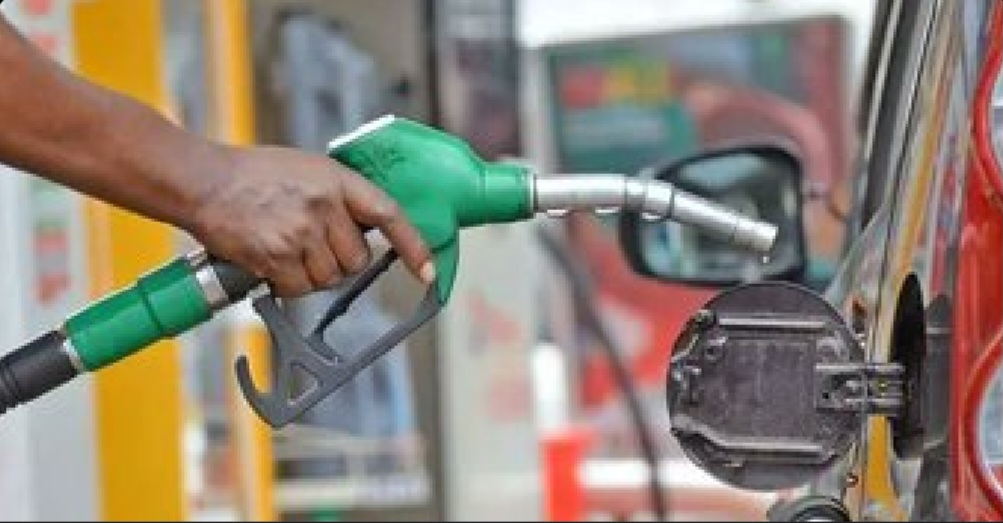
Olayomi Koiki
Abuja – The Independent Petroleum Marketers Association of Nigeria (IPMAN), has said Nigeria’s fuel subsidy expenditure might cross N700 billion monthly.
The Secretary of IPMAN, Abuja-Suleja, Mohammed Shuaibu disclosed in a statement on Monday.
Shuaibu was reacting to data released last Wednesday by the Major Energies Marketers Association of Nigeria (MEMAN), noting that the landing cost of petrol as of the preceding day was N1,117/liter.
Speaking on MEMAN’s data, Shuaibu contended that the Nigerian National Petroleum Company Limited (NNPCL) and the Nigerian government may not be telling the truth about the country’s fuel subsidy expenditure.
He warned Nigerians to be prepared for fuel pump price hikes.
“Petrol price is determined by the forces of demand and supply in the international market. When there is a global price increase, we should experience it in Nigeria.
“Therefore the N1,117/litre is not just based on our foreign exchange rate, but also the global PMS cost. The sole importer of this product is NNPC and the company is not telling us the truth.
“But data sourced by our counterparts, the major marketers, showed clearly that the landing cost of petrol is above N1,100/liter. This means that the monthly subsidy has crossed N700bn.
“That also means we should be prepared so that any time the price of petrol jumps, we should not be surprised because they have already told us,” Shuaibu stated.
However, the Minister of State for Petroleum Resources (Oil), Heineken Lokpobiri on several occasions had insisted that fuel subsidies remain removed in Nigeria.
Further analysis showed that although petrol goes for between N617 per liter and N750 per liter depending on the location, dealers said the ex-depot price of the commodity by NNPC is N585/liter.
This brings the difference between the landing cost of N1,117 and an ex-depot price of N585 to N532.
According to the Federal Ministry of Petroleum Resources, petroleum consumption figures of 44.3 million liters in October 2023, multiplied by the estimated N532 subsidy paid on each liter of petrol, give N23.57 billion as the daily subsidy spending.
The figure of the estimated fuel subsidy thereby amounts to over N700 billion in 30 days.
This comes amid the impasse between Dangote Refinery and the Nigerian Midstream and Downstream Petroleum Regulatory Authority over substandard petroleum products.
Meanwhile, the Lokpobiri on Monday, presided over a meeting with the heads of the Nigerian Upstream Petroleum Regulatory Commission and Nigerian National Petroleum Company Limited.
The former governor of Kaduna State, Mallam Nasir El-Rufai, had said that the President Bola Tinubu-led Federal government is paying more on fuel subsidies than before.
Similarly, the President of the Trade Union Congress, Festus Osifo had also hinted at the government is applying a quasi-fuel subsidy on petrol.
The country is facing its worst economic crisis in decades, with skyrocketing inflation, a national currency in free-fall and millions of people struggling to buy food. Only two years ago Africa’s biggest economy, Nigeria is projected to drop to fourth place this year.
The pain is widespread. Unions strike to protest salaries of around $20 a month. People die in stampedes, desperate for free sacks of rice. Hospitals are overrun with women wracked by spasms from calcium deficiencies.
The crisis is largely believed to be rooted in two major changes implemented by a president elected 14 months ago: the partial removal of fuel subsidies and the floating of the currency, which together have caused major price rises.
A nation of entrepreneurs, Nigeria’s more than 200 million citizens are skilled at managing in tough circumstances, without the services states usually provide. They generate their own electricity and source their own water. They take up arms and defend their communities when the armed forces cannot. They negotiate with armed kidnappers when family members are abducted.
But right now, their resourcefulness is being stretched to the limit.
Some folks are planning protests to voice their concerns about the economic situation, including rising inflation and poverty, under President Tinubu’s administration.
The protests are expected to happen in the north and other parts of the country, but residents and leaders of the south-eastern region, inhabited by the Igbo ethnic group – have made it clear that they are not going to be part of the mass action.
KOIKI Media bringing the world 🌎 closer to your door step
